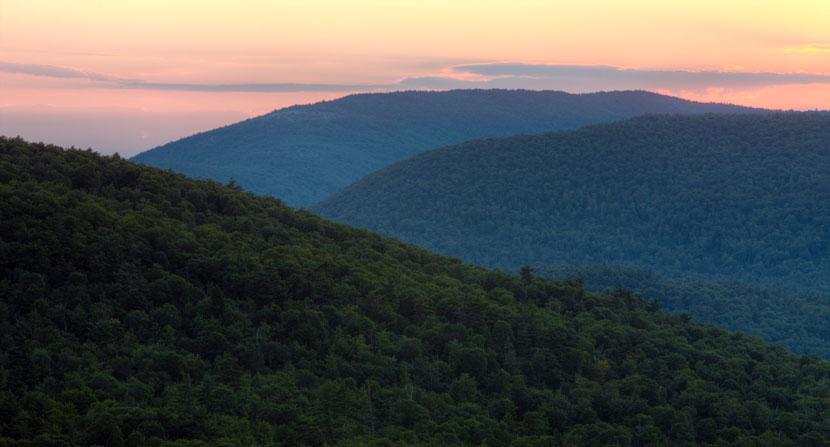- Tags:
- Northern Pass

HB 454 would shift the burden onto interveners and other parties to prove there is an unreasonable adverse impact on private property values. Photo by Jerry and Marcy Monkman/Ecophotography.
House Bill 454, currently before the House Committee on Science, Technology and Energy, proposes changes to the criteria that the NH Site Evaluation Committee (SEC) uses to determine if an energy facility will have unreasonable adverse effects on aesthetics, historic sites, air and water quality, the natural environment, and public health and safety.
The Forest Society cannot support HB 454 and testified in opposition during its hearing before the Science, Technology and Energy Committee on January 23. Supporters believe the aesthetic standard specified in NH RSA 162-H:16, IV(c) is too subjective and therefore a barrier to the development of energy projects, especially clean energy projects like wind farms.
We disagree with this position. During the hearing, we made the following points to the Committee:
- Since the Legislature amended the SEC statute (RSA 162-H) in 2014 and the SEC amended its rules in 2015, the SEC has approved three large scale energy facilities including the Antrim II wind farm and the Seacoast Reliability Transmission Project.
- In the Northern Pass docket, the SEC ruled against that project because it determined Northern Pass had not met the burden of proof under RSA 162-H:16 IV(b) that the project will not unduly interfere with the orderly development of the region. The SEC actually did not deliberate on the aesthetic standard.
- HB 454 shifts the burden onto interveners and other parties to prove there is an unreasonable adverse impact on private property values. The result of the bill, if it were to pass, marks a fundamental change in the underlying presumption of RSA 162-H. Specifically, the burden of proof is on the applicant, not those who may be impacted by a proposed project.
In addition, we submitted a joint written testimony with our partners at the Appalachian Mountain Club to further explain our opposition. Ultimately, the bill does not articulate exactly what problem it is attempting to solve. In fact, the SEC has approved recent projects in cases where aesthetics were a subject of contention.
So the question becomes: Should the Legislature undermine protections for property owners to solve a problem that doesn’t exist? The answer is a clear no.
If you are also concerned about the impacts of HB 454, please contact members of the House Science, Technology and Energy Committee.
